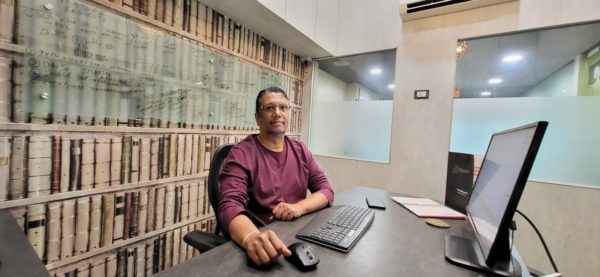The African continent has a burgeoning tech industry, but at the same time there exists multiple roadblocks. From rampant inequality to lack of digitalization and insufficient funding, it’s a tough ecosystem for startups to thrive in.
What’s bewildering is that, despite these challenges, Africa sports one of the fastest growing startup ecosystems. And that’s not all. Most of these startups are vision-led and provide dedicated solutions to technology gaps that the continent suffers from.
Be it fintech solutions that allow diaspora communities to send money back home without hassle, or agritech innovations that answer root causes of farming inequality; the homegrown African startups are a beacon to the growing tech infrastructure in the continent.
Healthcare at the Centre of the Conversation
More than a billion people across the African continent lack access to proper healthcare either due to social inequality or lack of medical coverage, as per the latest UNECA report. Governments are also unwilling to spend excess amounts on increasing healthcare infrastructure.
In such a situation, startups are showing the way forward. CheckUps, a tech-enabled medication delivery service is providing medicines to some of the remotest areas of countries such as South Sudan and Kenya. In Congo, the LukaPharma app is widely in use to locate pharmacies that have a particular medication in stock.
There are also startups focused on providing healthcare coverage and enabling small medical loans. Ms. Ngamau, founder of CheckUps states that African society works differently from many other parts of the world. So, it is imperative to understand the nuances before diving into the sector.
Funding is Still a Burning Issue
Even though these startups are achieving groundbreaking milestones, many times investors are unable to spot the real value behind them. Between 2022-2023, the African tech sector lost more than 40% of its investors, and now stands at a valuation of $3.5 Billion, half of its valuation from the previous year.
Bennie Mmbaga, who leads an agritech startup called Maua Mazuri states that foreign investors are unable to understand why simple innovations need to be funded. But it is these simple agri and fintech innovations that are creating a wave of change across the continent.
The GITEX Africa event held earlier this year showcased many of these startups who are leading the tech ecosystem in the continent. Many of them stated that the scenario is now beginning to change, and African tech startups are slowly becoming the focus point of many global tech conversations.
Resilience Amidst Challenges
Even with all the burning issues the beacon of hope is still lit as the African tech sector continues to exhibit some growth in foreign investments, attracting significant venture capital investment and fostering the emergence of new unicorns. Resulting in venture capital investment in African tech startups reaching $5.2 billion in 2023, a 35% increase from the previous year. The number of African tech unicorns (startups valued at over $1 billion) increased to 14 in 2023, up from 10 in 2022.
On the other hand, mobile money adoption remains a cornerstone of the continent’s financial landscape, with millions of people benefiting from its convenience and accessibility. Right now Africa is a global leader in mobile money adoption, with 560 million mobile money accounts registered across the continent.
Innovative startups are addressing critical challenges such as food security and financial inclusion through agritech and fintech solutions. For instance, Hello Tractor’s mechanized farming services have empowered smallholder farmers with over 1 million hours of mechanized farming services to smallholder farmers by 2023; While Fintech like MFS Africa has facilitated $10 billion in financial transactions.
These developments underscore the immense potential of the African tech ecosystem and its capacity to drive positive change across the continent.













